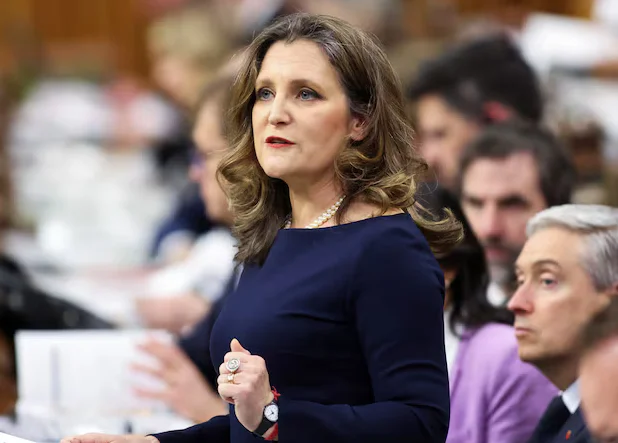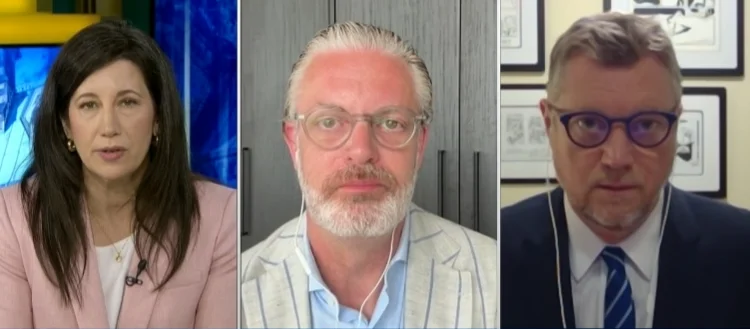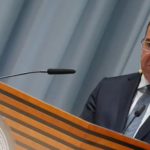
Canada’s Finance Minister Chrystia Freeland delivers the 2024-25 federal budget in the House of Commons on Parliament Hill in Ottawa on April 16, 2024. IMAGE /Getty Images
In Summary:
- Finance Minister Chrystia Freeland credited the government’s fiscal policies for the Bank of Canada’s interest rate cut, drawing criticism from political strategists.
- Strategists advise the Liberals to acknowledge Canadians’ hard work instead of taking credit, outline a forward-looking economic plan, and contrast it with the opposition’s approach.
- The Conservatives dismissed the rate cut as insufficient relief for affordability issues, prompting experts to suggest framing it as a positive step while proposing long-term solutions.
In a recent episode of CTV’s Question Period, political strategists critiqued both the Liberal and Conservative parties for their reactions to the Bank of Canada’s decision to cut the key interest rate.
The central bank reduced the rate to 4.75 percent from five, marking the first cut since before the pandemic.
Finance Minister Chrystia Freeland celebrated the move, attributing it to the government’s fiscal policies.
“Canada is the first G7 country where interest rates have been lowered. Our economic plan is working,” she stated.
However, Scott Reid, a political analyst and former communications director to then-Prime Minister Paul Martin, criticized this approach. He argued that the Liberals should avoid taking credit and instead acknowledge the hard work of Canadians.
“Say, listen, it’s because Canadians have been working hard, sticking with the plan, and we’re starting to see signs of hope,” Reid advised.
He emphasized the importance of outlining a forward-looking plan and sharply contrasting it with the Conservative agenda.
Kory Teneycke, a former director of communications for Stephen Harper, agreed, noting that the Liberals might be seeking public gratitude, which is rarely forthcoming in politics.
He warned that without a clear, future-focused strategy, the Liberals might face electoral repercussions.
The Conservatives, meanwhile, dismissed the rate cut as insufficient, arguing that affordability remains a significant issue for Canadians.
Kathleen Monk, a former NDP strategist, warned that this approach might also be flawed. She highlighted the need for psychological relief, where Canadians feel financially secure enough to enjoy small luxuries like vacations without constant financial stress.
Both Reid and Teneycke agreed with Monk’s criticism of the Conservative response, acknowledging that any relief is positive.
Teneycke suggested that the Conservatives should frame the rate cut as a minor but welcome step forward.
Overall, the strategists recommend that the government should credit Canadians for their resilience and focus on communicating a hopeful and strategic economic plan moving forward.

Canadian political strategists Kathleen Monk (left), a former NDP strategist, Kory Teneycke (center), previously director of communications for Prime Minister Stephen Harper, and Scott Reid (right), a former communications director to Prime Minister Paul Martin, appear in a screenshot from CTV’s Question Period program where they analyzed the federal government’s messaging around the Bank of Canada’s recent interest rate cut. (Image:CTV)

